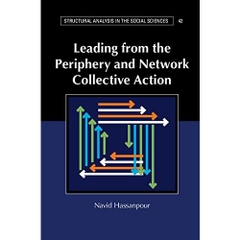-
-
-
Tổng tiền thanh toán:
-
-
Thông tin
-
Tìm sách theo yêu cầu
A quarter of a century after the end of Communism swept away the ideological conflict of the ‘short 20th century’, a new world is once again taking shape, this time in the Middle East. But what does the crisis in the region, and its refugee exodus into Europe, signify for the future of the world? And why has the noble dream of nation-building failed? Focusing mainly on religion, ideology or economics, most analysis ignored one crucial factor: asabiyyah, or group feeling, something outlined six and a half centuries ago by a largely ignored Arab historian called Ibn Khaldun.
Ibn Khaldun is largely overlooked in the west, yet on top of his claim to being one of the greatest historians of all time can rightfully be viewed as the father of social science and sociology. His book, The Muqaddimah, dealt with a range of subjects from science to economics to the rise and fall of empires, which he attributed to ‘the asabiyyah cycle’ – the evolution of societies from barbarism to civilisation to decadence, which he attributed to the strength of ‘group feeling’.
Even today asabiyyah is an essential component of human society and development, and is the key to understanding why some states fail and others succeed, why democracy works sometimes but often not, and why the nation-state will remain the foundation of human society. Whatever happens from now on, the outcome of the 21st century will be dependent on asabiyyah, which remains the fundamental reality of human existence.
Tại web chỉ có một phần nhỏ các đầu sách đang có nên nếu cần tìm sách gì các bạn có thể liên hệ trực tiếp với Thư viện qua Mail, Zalo, Fanpage nhé
Đăng ký nhận tin qua email
Hãy đăng ký ngay hôm nay để nhận được những tin tức cập nhật mới nhất về sản phẩm và các chương trình giảm giá, khuyến mại của chúng tôi.












